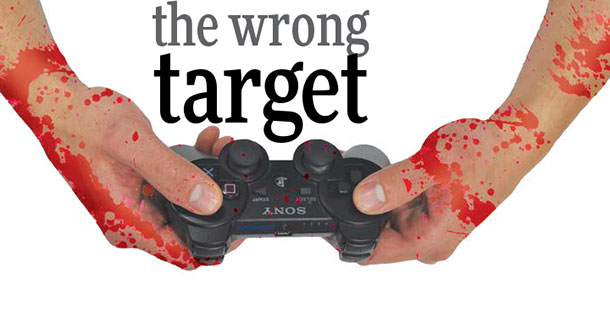There seems to be a growing concern that video games, specifically, “Mass Effect 3” and other first person shooters, have something to do with the shooting at Sandy Hook Elementary school in Newtown, Conn. In the broader picture, the NRA has even come out to say that video games and violent media are directly causing violent behavior.
“Innocent lives were lost because of this game,” someone exclaimed on a Facebook status. “Get off your butts and add disclaimers that these games are not real life.”
There’s a certain level of logic that gets overlooked when people are upset and vulnerable. We’re not dealing with some vague misunderstanding of what constitutes reality. No, not at all. We’re dealing with a gross misunderstanding of video games, and clear neglect on the front of mental health care. Should we do as NRA President Wayne LaPierre says and put armed guards in schools across the country? How does one stop gun violence by supplying more guns, and from people authorized to use them at will?
Maybe this is to be expected, though. It’s not uncommon to seek blame when tragedy strikes, and to do so irrationally. Be it an international tragedy such as 9/11, or Sandy Hook Elementary. Reacting immediately, the only justification one can see when trying to draw a link between video games and something as serious as a mass shooting is the frequency of violence and the relationship the killers have to games. But then we also need to understand what type of person they were.
Has anyone ever stopped to think maybe the person who went on a rampage was already mentally ill? Maybe they were traumatized as a child and now they have a hard time coping with real life. Maybe said event caused them to have inadequacies. A skewed sense of judgment, even. According to a report by Associated Press, Ryan Lanza (brother of the suspected killer, Adam Lanza) described his brother as “somewhat autistic.” This isn’t to say that autism or any disorders have anything to do with murders; however, it is a real disorder that could have affected judgment on behalf of the attacker. Any disorder or mental illness regardless of degree can affect someone’s day-to-day functioning, and as a result, their actions.
We can’t accept that video games are the cause, because violent media have existed for centuries. Looking back through the past several centuries, what about horror novels, theatre and campfires? We have been scaring each other with tales of tragedies, as far back as the Romans and Greeks, for the sake of entertainment. It isn’t a valid excuse anymore.
We should not be focusing on media as a cause for these murders. Let’s look at ourselves first. America overworks itself and is very susceptible to health issues, including stress disorders and anxiety. Here at Madison College, there are counselors and staff available to help those in immediate need, but colleges and communities across the nation need to invest in better long-term mental health infrastucture.
We don’t prioritize mental health care like we do physical health, moreover, we don’t see the connection between the two. Well, at least 50 percent of America is affected by an anxiety disorder, so there’s our cue that mental health matters. Making guns more readily available than health services can only mean bad things for the lazy and troubled. Not everyone is prone to react with “I need to see a professional!” afterall.
To make matters worse, studies are executed toward media including video games, and continue to be, in what appears to be an attempt at shifting blame. Then the NRA comes out in a press conference saying, “the only way to stop a bad guy with a gun, is to have a good guy with a gun.” We can do better than this.


























